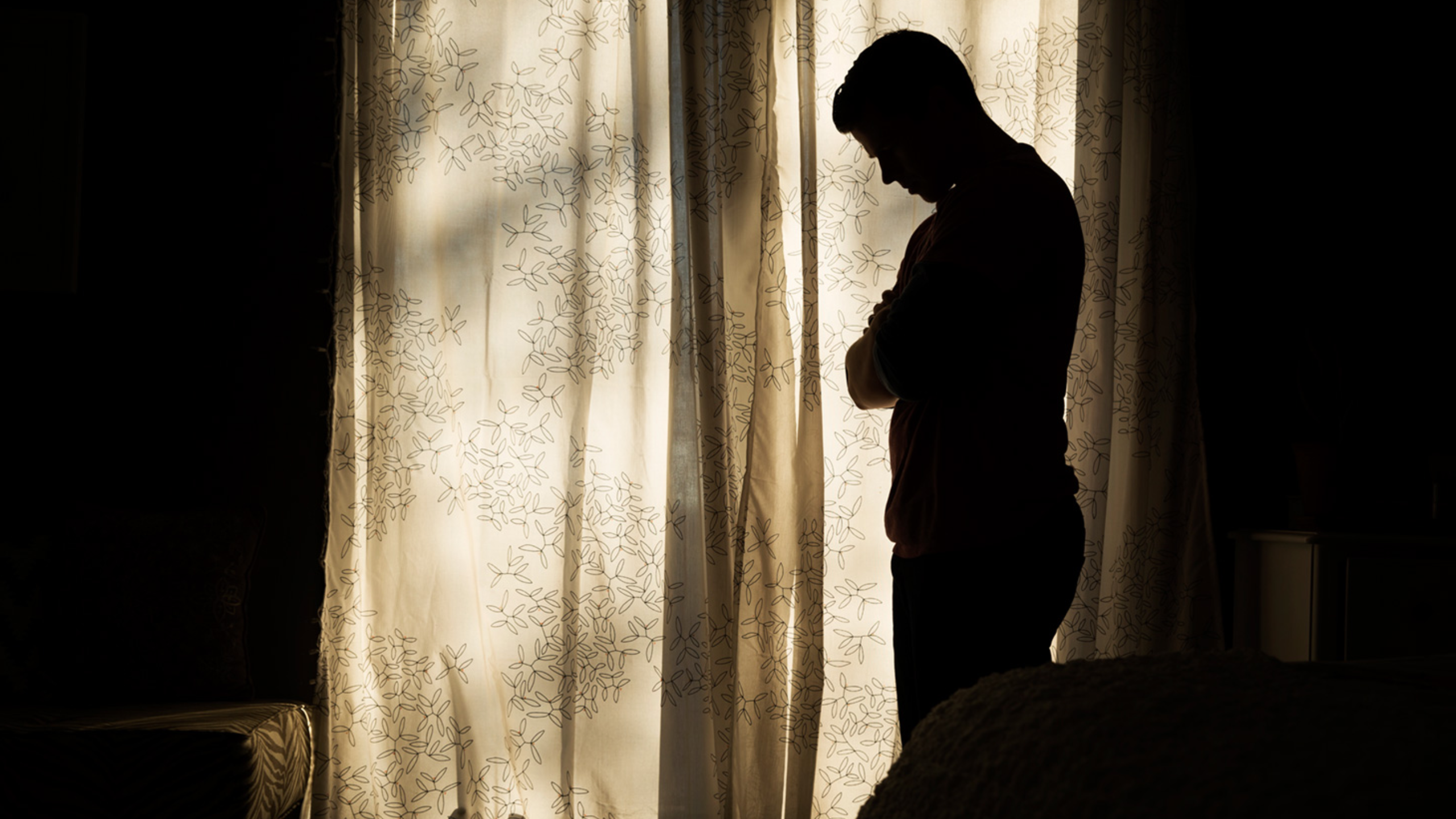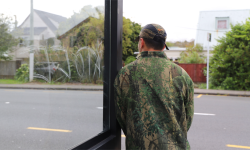
One in four New Zealanders will experience mental illness in their lifetime. Not all will require hospitalisation. Many will recover, few will be cured.1 All need to be loved and befriendedu2014something Wyatt Butcher, a chaplain to mental health inpatients, believes Christian faith communities could, and should, do.
Twenty years ago, I knew nothing of the mentally ill except the fear and a hard heart learnt by having a cousin whose paranoid schizophrenia scared me as a child and young man. I did not understand the depth of spiritual insight and yearning that their illness gives them.
Through suffering, both physical and mental, we learn and experience so much more. In December 1999 my son was knocked off his pushbike and died 22 days before his 15th birthday. It was, and hopefully will always be, the worst day of my life.
It is a constant surprise to me that I can now praise God that out of that event he grew in me a heart of compassion and led me into the ministry I was made for and the passion for those I work with daily. I thank God for the blessing those with mental illness have given me over the 15 years that I have had the privilege of serving them.
Susanu2019s story
When I first met Susan (not her real name), she had no idea she would still be in hospital several weeks before being discharged. She would then be recommitted within three weeks because she missed a compulsory injection. This was despite the fact that she had rung to ask for a new appointment as it was not possible to get to the original one on time.
She described to me how she came to hospital:
I just opened the front door and there was my case manager with two policemen. u201cGrab a few clothes and get in the car,u201d they instructed. u201cLook, do as youu2019re told and get in the car,u201d was even firmer when I hesitated. They hustled me to the car and brought me here. That was two weeks ago.
I am not allowed to leave, not allowed my phone and they have taken my bank cards, wallet and keys. I donu2019t know where my dog is or who is feeding my cat. I need to get more clothes as I am going to be here for another two weeks before I can see the judge again.
Susanu2019s comments are typical of many first meetings I have with patients in one of our countryu2019s psychiatric hospitals. Her situation is common amongst those who have a u2018mental illnessu2019. Many of her family and friends have been so hurt over the years they no longer want to have much to do with her. Holding down a steady job is extremely difficult as she has insufficient sick days to cover her times in hospital. She is back on the sickness benefit.
Living within u2018the systemu2019
Susan lives daily with the stigma and difficulties caused by her paranoia and variable moods. Then, when she gets unwell, the very system that is set up to help her feels repressive and punitive. The control legitimised by the Mental Health Act and executed by health staff fits the pattern of her fears.
The inpatient services where I minister has almost 200 patients based on bed numbers. Often those in hospital considerably exceed the bed numbers. Ages range from six-year-olds through to those in their 70s. They consist of every type of gender imaginable and a few who just are not sure. There are people from all backgrounds, ethnicities, religions and economic statusu2014all sharing the same curse of being declared mentally ill.
This hospital used to hold almost 1500 patients in the 1980s. Over the later part of last century, services all around the world moved to less or no long-term housing of the mentally ill. Instead they adopted a community services model. The vast majority of the mentally unwell now live u2018in the communityu2019.
Some have done well being out of the hospital environment; others have been reinstitutionalised into our prisons. Those chaplains who were working in the 1990s tell me many died by their own hand after being deinstitutionalised. Unfortunately, many live lonely lives at the lowest end of economic well-being, disadvantaged by their illness, co-existing addictions and disorders, and the sheer difficulty of everyday life.
The least of these
The problem with the concept of u2018living in the communityu2019 is that our cities and towns are not communities; they are populations of people living in proximity to each other. Community implies a sense of caring and support, of looking out for one another. Many people donu2019t even know who their neighbours are, let alone care for them, particularly if they are a bit u2018oddu2019.
Matthew 25:41-46 describes the damning judgement Jesus will make on those who withhold their care and support from people whom society esteems the least. Surely in New Zealand, the mentally ill are the u2018least of theseu2019.
The simplest way we can show our care is not through programmes or healing services or expectations of change, but genuine friendship within a community of Godu2019s people. This is the type of friendship modelled by Jesus and shown in the scriptures. It is a friendship based on real love, not obligation or an attempt to recruit new Christians. A friendship that listens and accepts people as they are.
Such friendship is not easy. John Swinton writes, u201cthose who would befriend others in such difficult circumstances require guidance, support, supervision and educationu201d.2
At present such guidance, education and support is scarce within the church. We need to be investing in the development of such resources and training. In the light of Jesusu2019 comments about the u201cleast of theseu201d and the fact that mental illness is so prevalent in our country, we need to make learning how to love, care for and befriend those with enduring mental illness a priority.
Story: Wyatt Butcher
Wyattu2019s career path included farming, valuation and property management, and teaching before entering Christian ministry in the mid 1990s. He has been chaplain to the Specialist Mental Health Services of the Canterbury District Health Board for 15 years. During his chaplaincy he has completed a Master of Health Science (Mental Health) and is currently researching on the beliefs and practices of the non-religious in New Zealand, towards a doctorate from the University of Aberdeen. Wyatt is married with two grown daughters. In his spare time he is a keen fisherman and hunter who restores, builds and rides custom motorcycles.
References:
- This figure will range from 1 in 2 to 1 in 6 depending upon which official publication is quoted. Much mental illness is of an enduring nature and further bouts of un-wellness are possible. Recovery is defined as living well in the presence or absence of your illness.
- John Swinton, From Bedlam to Shalom: Towards a Practical Theology of Human Nature, Interpersonal Relationships, and Mental Health Care (New York: Peter Lang Publishing, 2000), 153.
Scripture: Unless otherwise specified, Scripture quotations are from New Revised Standard Version Bible, copyright u00a91989 National Council of the Churches of Christ in the United States of America. Used by permission. All rights reserved.


